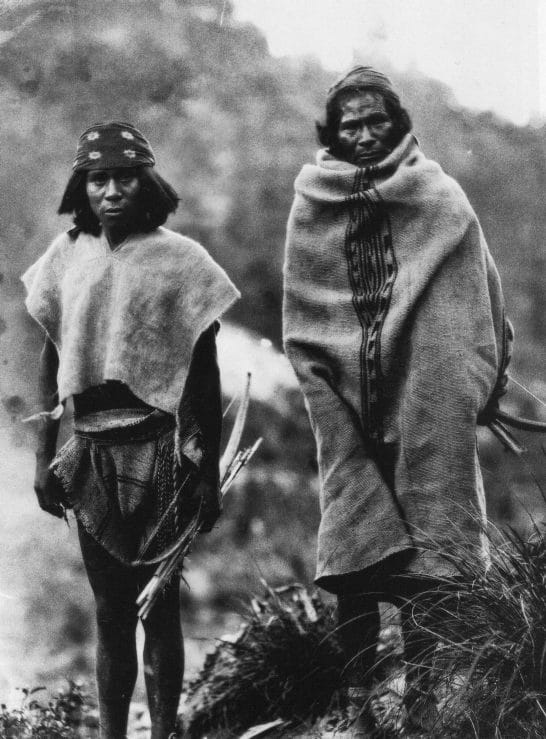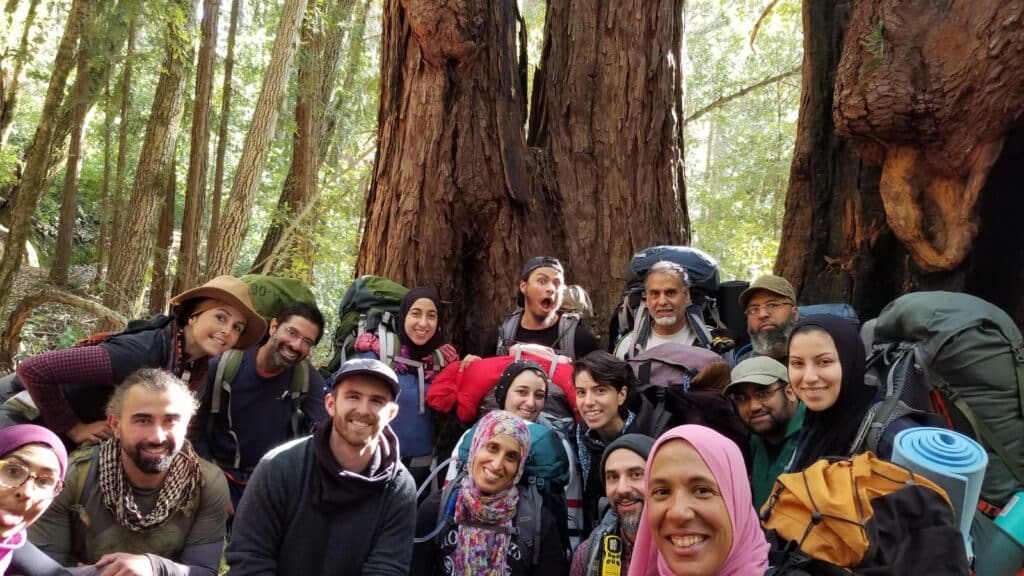
Back in 2013, Dust and Tribe invited the men of the local Southern California Muslim community to run an ultramarathon.
This was inspired by a number of converging events.
I was 38 and had been hospitalized for the first time after a routine gall bladder surgery went bad. After a few days in the ICU, I came home with the realization that my body is not something to take for granted and I wanted to learn more about its capabilities.
I had also learned about Big Basin Redwoods State Park, California’s oldest state park and home to a large portion of the Skyline-to-the-Sea trail which winds more than 30 miles through the Santa Cruz mountains and down to Waddell Beach. This was normally completed as a two or three day backpacking trip, but there were a few race organizers who used this very trail to stage an ultramarathon. We ran that race and it became one of the defining moments of my life.
It was also at this time that I started reading Christopher McDougall’s bestseller, Born to Run: A Hidden Tribe, Superathletes, and the Greatest Race the World Has Never Seen. In this book, McDougall tells us about the Rarámuri, an indigenous people of Chihuahua, Mexico that had escaped deep into local canyons centuries ago to escape the invading Spanish.
In that precarious landscape that allowed for only narrow footpaths, they had developed a unique running culture. McDougall’s book brought the tribe and their running traditions to the attention of the wider world, setting off an entire sea-change in the budding sport of endurance running. All of a sudden, everybody was running in sandals and devouring chia seeds.
Things have changed so much since then. Big Basin is burning. Dust and Tribe ran that ultramarathon in 2013 and we went back for a coed backpacking trip in 2019.

It’s a magical place with wonderful memories and we are praying that the fires pass, leaving this landscape for the discovery and exploration of future generations.
More recently I learned about the terrible misfortune of the Rarámuri. Most work as subsistence farmers in the deep canyons, and years of drought have strained this way of life. To make matters appallingly worse, drug cartels have established control of the area, baiting and forcing these poor and often desperate people into growing opium and running (literally) cartel narcotics to drop points near the US border.
This is an old article, but I only now came across it and felt compelled to share. Our country is in the midst of a national referendum on the topic of how we engage our indigenous communities. And although not native to the United States, the ways of the Rarámuri were built into the marketing campaigns of many US-based corporations, those who sold footwear and energy supplements inspired by Rarámuri traditions and practices. In a cruel twist that is becoming increasingly familiar, everyone seemed to profit except the Rarámuri.
You can read the full article here.
Leave a comment below for posterity or join us in the D&T Chautaqua Discord to discuss this post with other adventurous spirits from around the world.
Ultra marathon runner should definitely be on your resume. 🏃🏻 Impressive & Nicely done. Praying for our planet and all it’s Indiginous inhabitants
My first and likely last! But what an incredible chapter, al-hamdu lillah!
I missed the ultra marathon, but got to experience the skyline to the sea hike, for 3 days with an amazing group of people in a magnificent surrounding. Long-term immersion in nature leaves longer-lasting impressions on the soul
Our time in Big Basin remains one of my most memorable experiences. So glad you were a part of it!